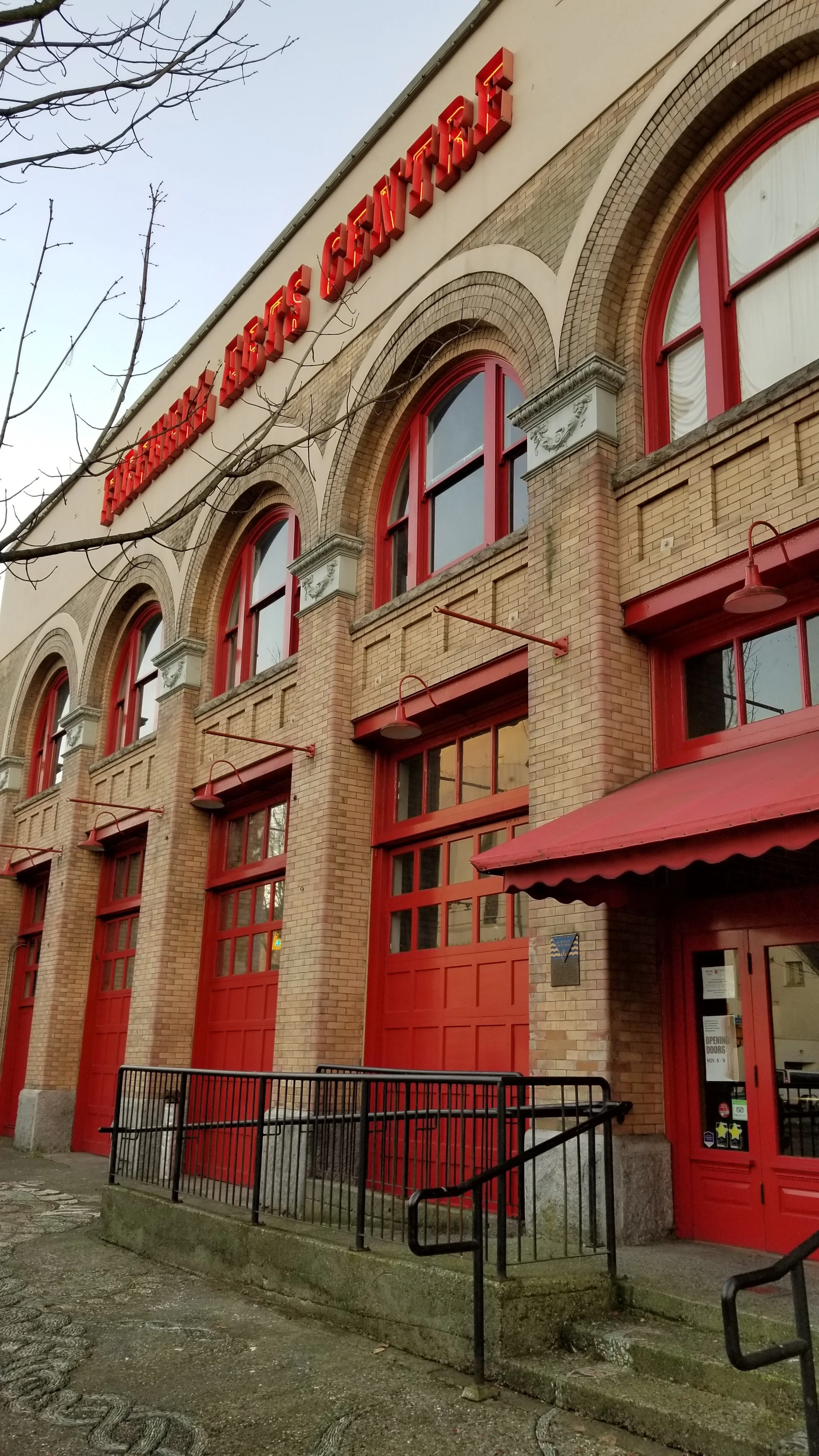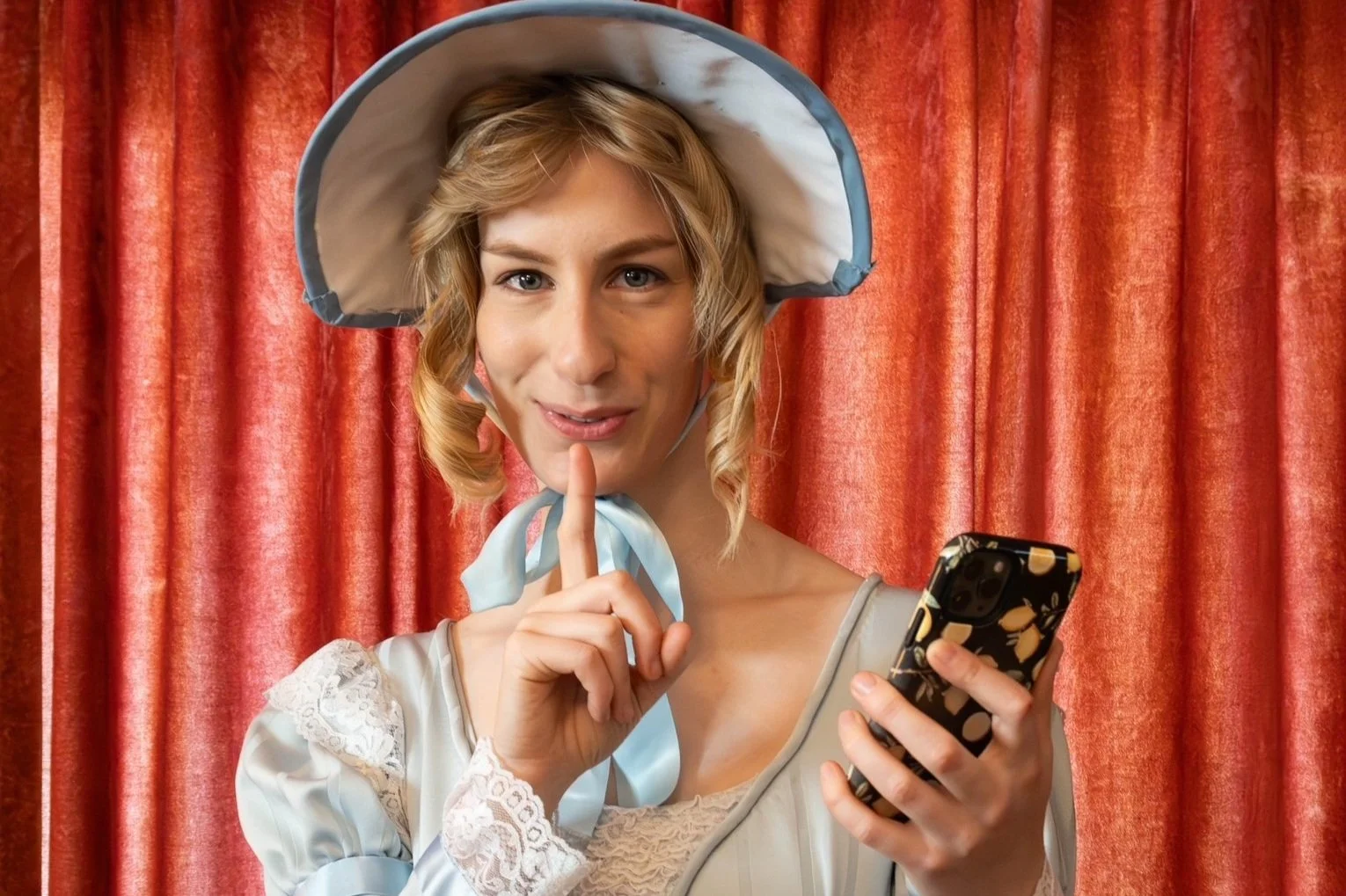Firehall Arts Centre celebrates 40, welcoming audiences back to live theatre again
Artistic producer Donna Spencer reflects on goals, like diversity, that have remained a priority, amid a new arts climate
Artistic producer Donna Spencer has tried to create a season program that will offer audiences hope.
LOOKING BACK AS THE Firehall Arts Centre opens its 40th season, Donna Spencer admits to feeling some of the same challenges she did back in the early 1980s after the theatre first opened its doors.
This post-pandemic live season isn’t exactly like starting all over again. When the 1906 firehouse—Vancouver’s first—was converted into a theatre in the early 1980s, Spencer came on board to help build its audiences and programming from the ground up. But she admits with a good-natured laugh that entering the 2022-23 season after a few years of full and semi-shutdowns in the performing arts gives a slight sense of déjà vu: “It does kind of take me back to a feeling of a new frontier in some ways.”
“What it does feel like in many ways is, yes, we are rebuilding our audiences,” she explains to Stir. “When I got involved in the arts in my early days, we did not have a vibrant community of arts and we did not have as many companies or opportunities to see theatre and dance. And in the intervening years, Vancouver has grown in terms of the number of artists who live here and the opportunities.
“We really do want people to come back and enjoy theatre and dance in a way that they did before,” she adds of the process she faces in the 2022-23 season, “and I think it’s going to be difficult, because we all have new habits. That's really a goal that all of us that are creating performances and productions are going to have to embrace. We have been told, all of us, to stay apart. We’ve been told to enjoy things online—and for very good reason! But that has created new habits. We're not used to going out joyfully to the theatre and not questioning whether we’re going to be safe.”
This season’s roster is programmed in part with getting people back into seats for live performances. If there was a guiding theme for the plays, dance, and musicals hitting the intimate stage this season, it’s “hope”—something Spencer feels audiences are looking for right now.
That plays out in Khoj – A Contemporary Kathak Dance Extravaganza, the Indian classical dance show that kicks off the season this week, featuring Edmonton’s Usha Gupta Dance. It’s followed October 14 and 15 by The Unbroadcast Life of Mildred Bailey: produced by Red Cedar Theatre and directed by Columpa Bobb, it’s about the influential Indigenous-American jazz singer of the 1930s, with music and story by Russell Wallace with music by Tony Wilson. Even Manami Hara’s work, Courage Now, (November 19 to December 4, coproduced with Vancouver Asian Canadian Theatre), about a dark chapter in history, has a hopeful story: it follows the real-life tale of Japanese Consul Chiune Sugihara, who helped thousands of Polish and Lithuanian Jews escape the Nazis in 1940.
That kind of programming stays true to the guiding principles of inclusion that Spencer had in mind when the Firehall was just starting out. Look at some of the venue’s first decade of programming, and you see that it was a pioneer in diversity in the arts: R.A. Shiomi’s Yellow Fever; David Henry Hwang’s O.B. (Fresh Off The Boat), George C. Wolfe’s The Coloured Museum, or George Ryga’s The Ecstasy of Rita Joe.
Look for an exhibit of the Firehall’s vast poster collection from the past 40 years.
“I kept saying, ‘I want to create a Canadian company that really reflects the Canadian people,’” Spencer recalls. “But I think I was pretty naive about how to do that. I've learned so much, particularly from the Indigenous community, because I’ve worked with them a lot.
“So the goals continue to be the same, but how we execute them I think has changed a lot,” she continues. “First of all, there were very few directors of diverse cultural backgrounds at the time. There were very few lead actors or scripts from diverse voices at the time. That has changed and made the job richer, because there's more people to work with: more diverse directors, lead actors, and scripts by people from diverse backgrounds.”
Spencer says that, if she’s learned anything over the four decades, it’s that it’s important to build partnerships and dialogue between communities.
“It’s about trying to ensure that all of us learn more,” she says, “so that all of us learn about diversity in different ways, that all of us learn about cultural competency.”
Plans are still underway to mark the facility’s 40th with a special speakers series and an exhibit of the scores of show posters Spencer has stored at the Firehall over the years.
And expect at least one initiative—called the Maple Grove Project, planned with Bobb, who is associate producer at the centre this year—to reach back much farther than 40 years, and beyond the roots of the building as a firehouse. It’s being envisioned as a storytelling project as it evolves over the anniversary season.
“There once were lots of maples here, and it was a gathering place,” Spencer explains of the site where the Firehall Arts Centre sits. “What did that mean, and when settler colonialism happened, how did partnerships with Indigenous people evolve? Some were positive; most, unfortunately, were negative. So we’ll be looking at this place, how it sat before and how it sits now—and the fact that we are still gathering on this land.”
















